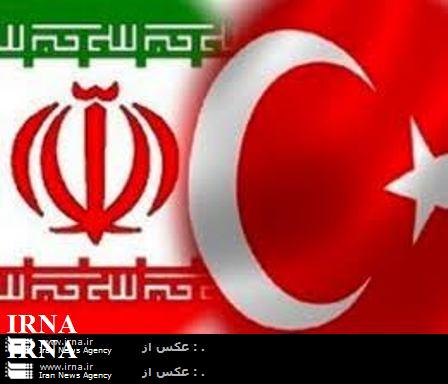ID :
284063
Sat, 05/04/2013 - 08:03
Auther :
Shortlink :
https://oananews.org//node/284063
The shortlink copeid
Turkeyˈs Crude Oil Imports From Iran At Peak Over Past 8 Months

Ankara, May 4, IRNA – Turkeyˈs crude oil imports from Iran during April was 140,000 bpd which marked a record high over the past eight months.
Turkeyˈs eco-finance reported that Ankaraˈs crude oil imports from Iran which was around 100,000 bpd from September 2012 to March 2013 with a slight increased in August reached its eight months highest record of 114,000 bpd.
Turkeyˈs increased oil imports from Iran takes place under such conditions that the United States still insists on need for intensifying the Iran oil sanctions, asking various countries to totally halt, or at least decrease their oil and gas imports from Iran.
Turkish Minister of Energy and Natural Resource Taner Yildiz said in Ankara Monday after meeting a US deflagration who demanded decreased gas imports from Iran that Turkish natural gas imports from Iran would continues as there is no substitute for it.
Minister Yildiz made the comment at a press conference after the meeting with the delegation which was comprised of senators and representatives of the US Congress.
According to the Turkish Anatolia news agency, US Congress Member Ed Whitfield (R-Ky.), chairman of the Energy and Power Subcommittee, had referred to discovery and excavation of new oil and gas resources in United States, arguing that the extent of discovered gas there is enough for US consumption for the next 100 years, adding that Turkey, too, can purchase that gas.
Minister Yildiz, all the same ensured that Turkey-Iran gas deal would remain quite unaffected and continue as before.
The UN ratifications have imposed certain limits on Iran energy sales and Turkey, too, abides by the international regulations, Yildiz said.
The Turkish Energy Minister noted that the annual need of his country to energy is equal to 119 million metric tons, adding, ˈTurkey imports 72% of that energy from abroad.ˈ
Yildiz added, ˈTurkey provides 44% of its needed electricity thru gas power stations and intends to provide another 30% of it by the year 2023 from coal power stations and 10% thru nuclear plants.ˈ
He said that by the year 2013 Turkey would have invested 130 billion US dollars in energy field, adding, ˈThere would then be very few countries exporting energy to Turkey.ˈ
Up to two years ago Turkey was providing half of the petroleum it needed from Iran, but has now decreased oil imports from Iran replacing it with Libyan, Saudi, and Russian oil. The Iranian gas exports to Turkey have all the same remained quite unaffected.
Focusing on method of paying the price of the Iranian oil and gas, Yildiz and depositing it in a bank in Turkey, said, ˈThat money is deposited in three ways. Iran has some companies in Turkey; in addition, Iranˈs international trade includes imports from Turkey.ˈ
On Saturday, Iranian Oil Minister Rostam Qassemi reiterated Iranˈs preparedness to supply Turkeyˈs energy needs, and announced that Tehran will boost export of natural gas supplies to the neighboring country.
ˈIran is prepared to meet Turkeyˈs needs in the oil, gas and petrochemical sectors,ˈ Qassemi told reporters on the sidelines of his meeting with visiting Turkish Minister of Development Cevdet Yilmaz in Tehran.
Qassemi added that he and Yilmaz had ˈconstructive negotiationsˈ about the further expansion of mutual cooperation in the oil, gas and petrochemical industries.
The Iranian minister further announced that Iran plans to boost gas exports to Turkey, adding that Tehran and Turkish companies will soon finalize a deal over the extension of a gas pipeline from Iranˈs Southwestern city of Ahwaz to the borders with Turkey.
ˈThe Turkish private sector companies will take part in the project and we hope to sign the contract within a month,ˈ Qassemi said, adding that Iran sees no restriction for the presence and activity of the Turkish companies and investors in Iran.
Iran and Turkey are determined to boost their trade exchanges to $30 billion in the near future.
Iran and Turkey have in recent years increased their cooperation in all the various fields of economy, security, trade, education, energy and culture.
The two sides have exchanged several politico-economic delegations during the last few months./end





